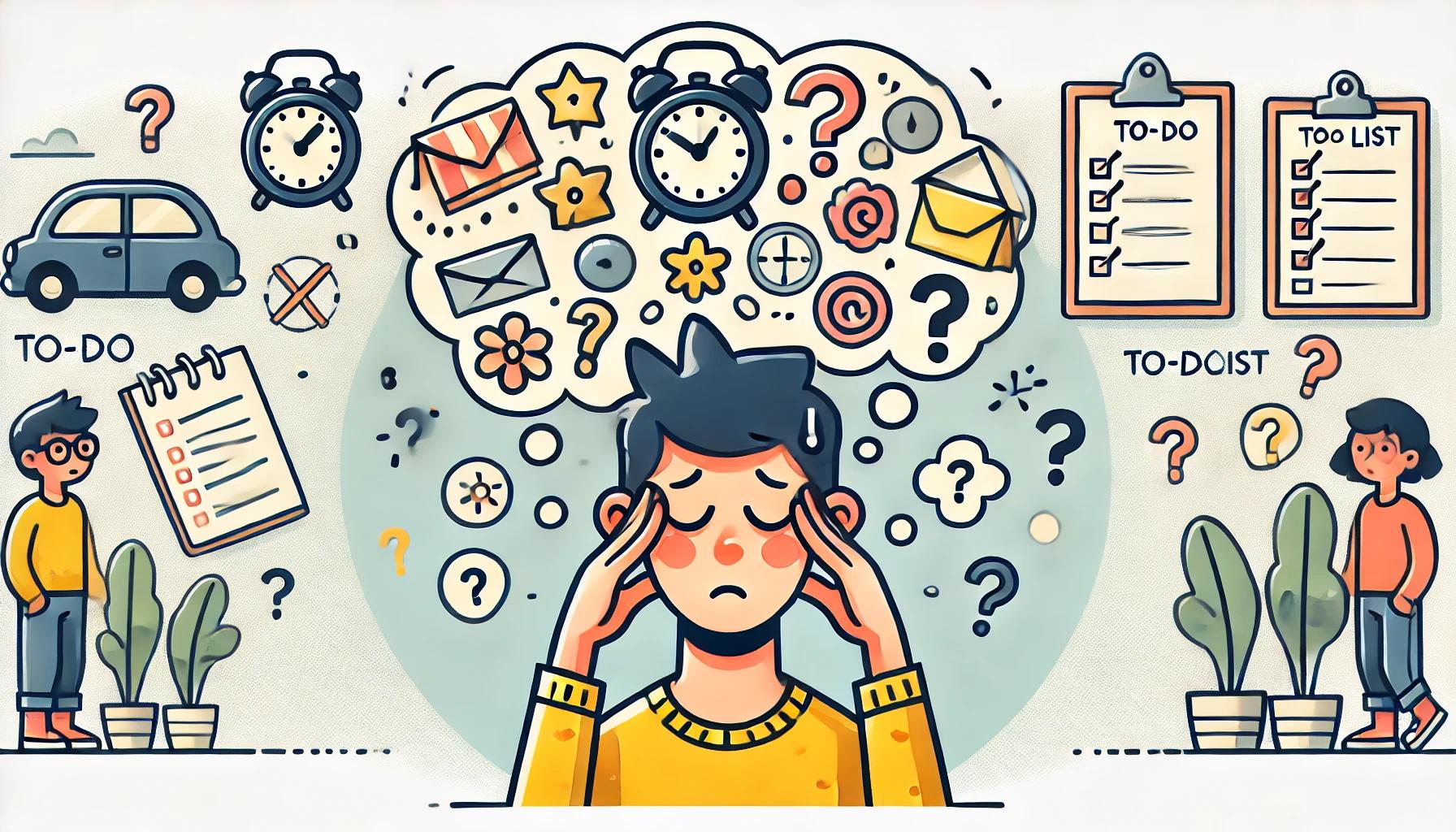7 ways AI can help manage your ADHD
Discover how AI can empower you to manage ADHD with smarter, more personalized solutions.

From smart washing machines in our homes to virtual assistants, AI is transforming practically every aspect of our lives. But few know that artificial intelligence can also be a lifesaver when it comes to managing Attention Deficit Hyperactivity Disorder, otherwise known as ADHD.
For anyone living with ADHD or has a loved one with the disorder, you know that day-to-day challenges can be overwhelming. These more often than not include difficulties in organization, maintaining focus, and managing time effectively — all areas where AI can offer invaluable support.
Madhurani Khare, MD, a Penn Medicine physician in Princeton, New Jersey, has expertise in treating patients with behavioral health issues including ADHD.
When asked to share her thoughts on patients using AI applications to help manage daily aspects of their symptoms, she said, "I think AI can certainly help people with ADHD with time management, setting schedules, appointment reminders and organization. There are a lot of AI tools out there and it can get overwhelming figuring out which one works best for an individual."
Managing ADHD with AI
Conventional ways of managing ADHD typically involve medication, therapies, and changes in lifestyle, but AI brings a whole new dimension that can make life far less of a struggle. By tapping into various AI-powered tools and apps, a person with ADHD can simplify their daily routines, reduce distractions, and discover strategies that help improve focus and productivity.
AI is singularly fitted to these diverse challenges in ways other approaches cannot, given the ability of AI to learn and adapt. For instance, AI can contribute to organization by reminding the user what to do, setting up reminders, and breaking huge projects into smaller, manageable tasks. AI can also contribute toward general well-being in terms of habit tracking, suggesting mindfulness practices, or real-time emotional support.
The following are a few ways AI may assist in tackling ADHD while supporting general well-being.
1. Keep your schedule on track
One of the most common issues in people with ADHD is remembering tasks and appointments. Virtual assistants, powered by artificial intelligence such as Siri or Google Assistant, can remind you about everything from taking your medications to when a meeting occurs.
Get instant access to breaking news, the hottest reviews, great deals and helpful tips.
Tell the virtual assistant what to remind you of, and when, and it will give you a timely nudge to help you avoid missing important events or deadlines. This will ultimately minimize stress while supporting your daily schedule.
2. Prioritize with less effort
Managing a list of tasks can be crippling in and of itself, mainly because ADHD makes prioritizing difficult. AI will organize your day with smart to-do lists that automatically prioritize your tasks.
Example tools could be Monday or Jira. These two options are less than $10/month and let you automate lists that adapt as your day unfolds to ensure you're focusing on what is most important first.
3. Time management
Big projects can be overwhelming, and too often, the product of that is procrastination. This can be a problem for anyone with ADHD. AI can support you by breaking down big projects into manageable pieces.
Apps like TrevorAI enable time-blocking, so you come up with a plan for how you want to spend your day. Not only does it make tasks seem less insurmountable, but it will keep you on track throughout the day.
"College students can benefit from AI tools to help them stay on top of their assignments, note-taking and organization. I am familiar with an app called Evernote which helps with to-do lists, set reminders, etc. There are tools to help with long term projects to break them into shorter assignments to stay on task," Dr. Khare said.
4. Focus and productivity
ADHD individuals often find it extremely difficult to pay sustained attention to a single thing over an extended period of time. AI may recommend productivity tips, such as working in regular intervals with short breaks.
Tools like Superhuman and Sunsama offer real-time assistance, ensuring that communication is clear, concise, and not digressing.
5. Personalized learning
AI has the ability to learn your behavior in the process of tailoring your education and training in whatever way feels comfortable for you. Attensi, Realtalk and Absorb are AI options that can recommend resources, exercises, and methods that will serve you better to learn the material and retain it in memory for subsequent use, whether as a student or professional.
6. Symptom monitoring
AI does more than help manage tasks and learning. Platforms like Affectiva utilize machine learning to help keep tabs on your health by monitoring your emotions. By processing information on daily activities and behavior, AI can offer valuable insights into how well you're managing your ADHD.
This kind of ongoing monitoring will allow you to adapt the strategies in real-time and stay one step ahead of your symptoms to make informed decisions about your treatment.
7. Medication management
For many people, medication is an important part of keeping ADHD symptoms managed, but one big problem often lies in remembering to take the medication as it is supposed to be taken.
AI-powered apps such as Healthily remind you to take your medication on time, so you will never forget a dose. Some AI systems can even track the effectiveness of your medication and give great insight to healthcare providers to allow them to provide more personalized and effective treatments.
Final thoughts
Living with ADHD is not easy, but AI is there to help with daily hurdles. From helping you stay organized, personalized learning, and health monitoring, AI can be a strong companion in managing your ADHD symptoms.
Dr. Khare cautions those with ADHD to be careful about leaning too heavily on AI. She says, "My main concerns are overly relying on technology and not developing any skills by oneself. It can take away from an individual's problem-solving skills if they are overly dependent on AI, especially in children and adolescents."
The possibilities of AI to continue to help those who have ADHD will only increase along with improving AI technologies. With further advances, AI may open up new avenues in ways to bring improvements in daily life and well-being.
More from Tom's Guide
- How to use ChatGPT to help write your resume in 9 easy steps
- How to get started with ChatGPT free model
- ChatGPT can now access the whole internet — this is big

Amanda Caswell is an award-winning journalist, bestselling YA author, and one of today’s leading voices in AI and technology. A celebrated contributor to various news outlets, her sharp insights and relatable storytelling have earned her a loyal readership. Amanda’s work has been recognized with prestigious honors, including outstanding contribution to media.
Known for her ability to bring clarity to even the most complex topics, Amanda seamlessly blends innovation and creativity, inspiring readers to embrace the power of AI and emerging technologies. As a certified prompt engineer, she continues to push the boundaries of how humans and AI can work together.
Beyond her journalism career, Amanda is a long-distance runner and mom of three. She lives in New Jersey.
 Club Benefits
Club Benefits















